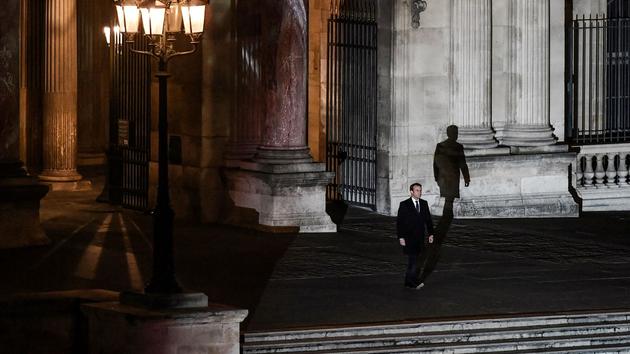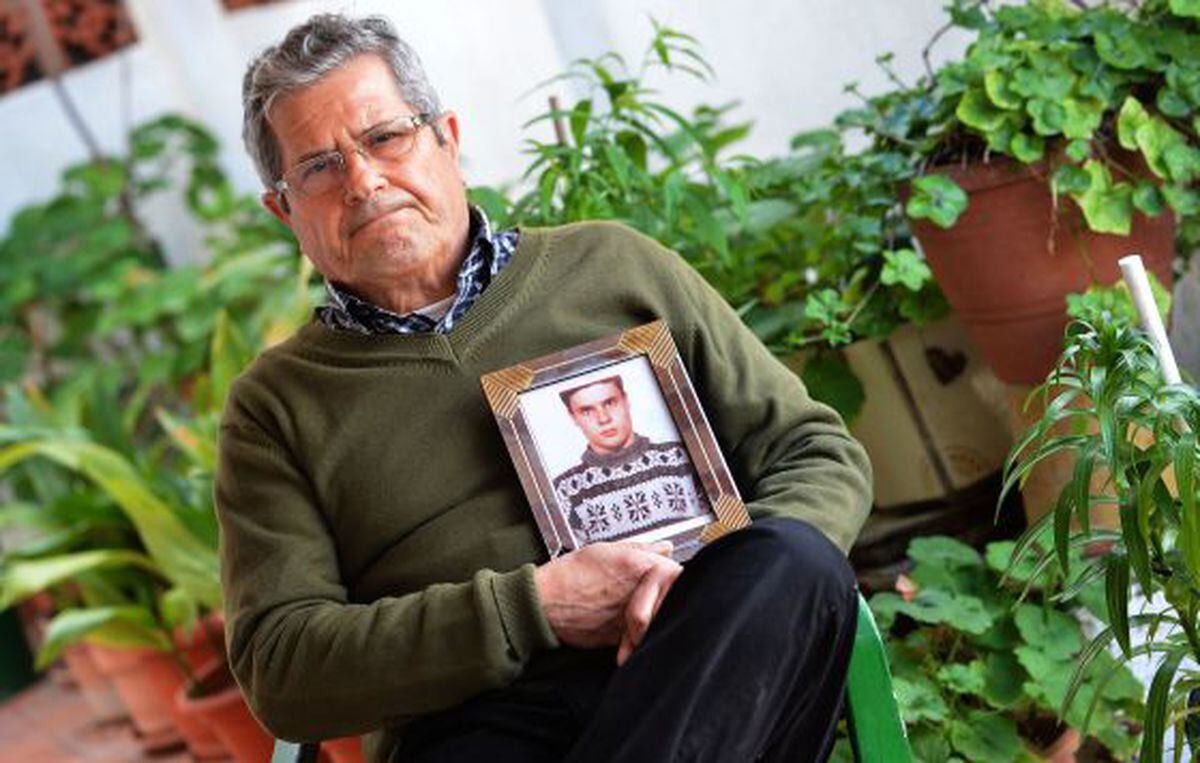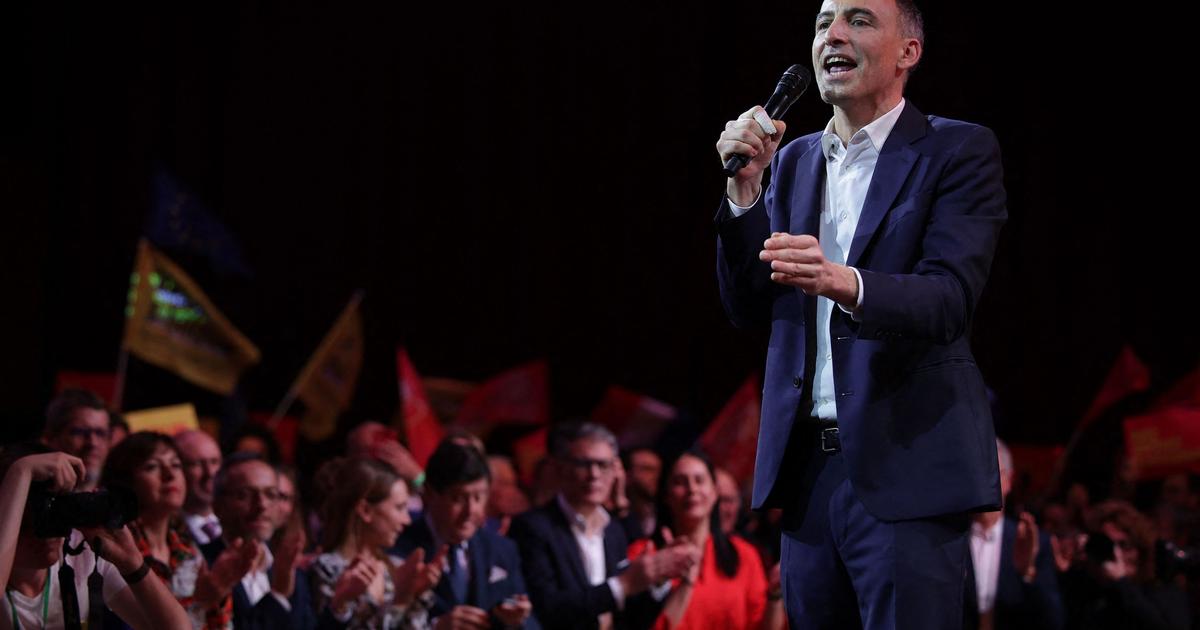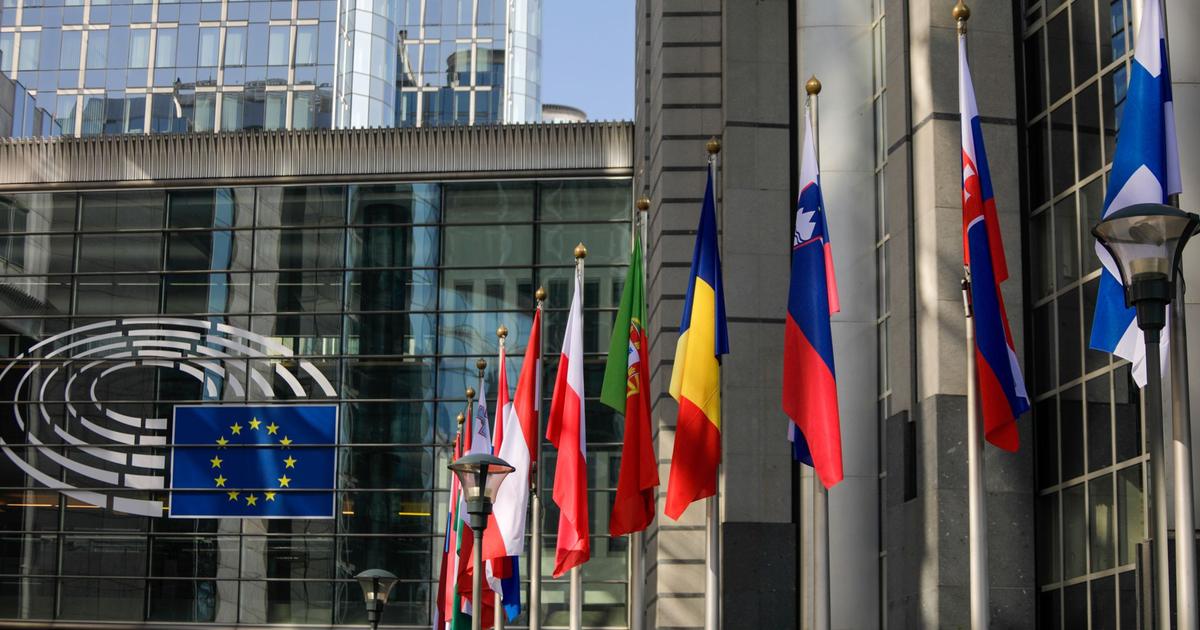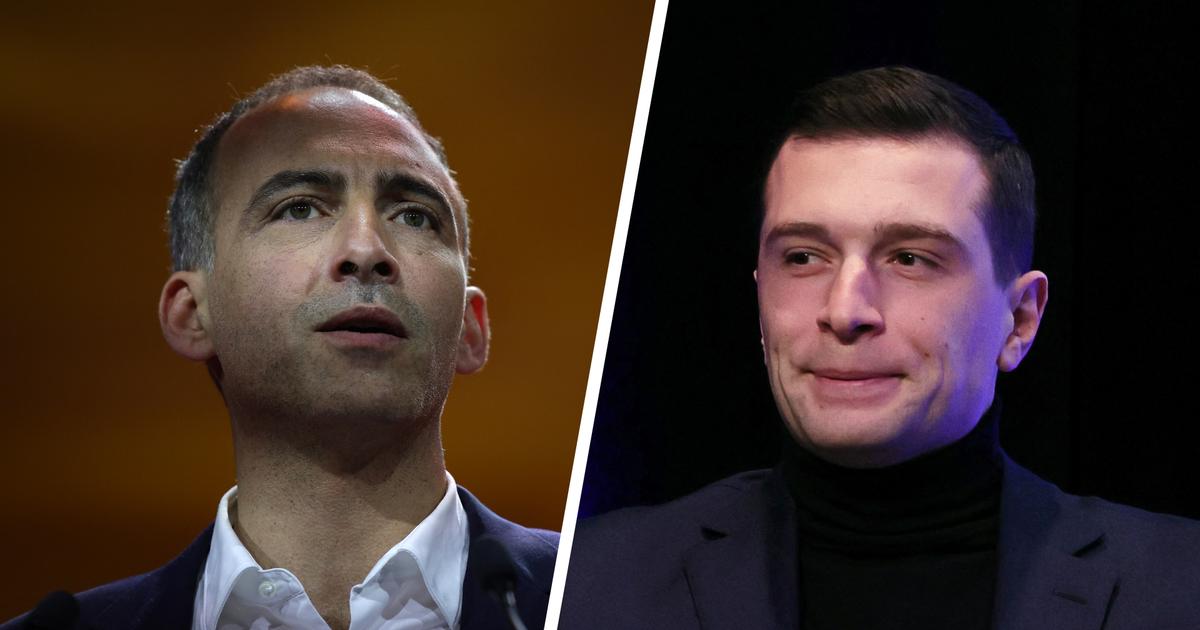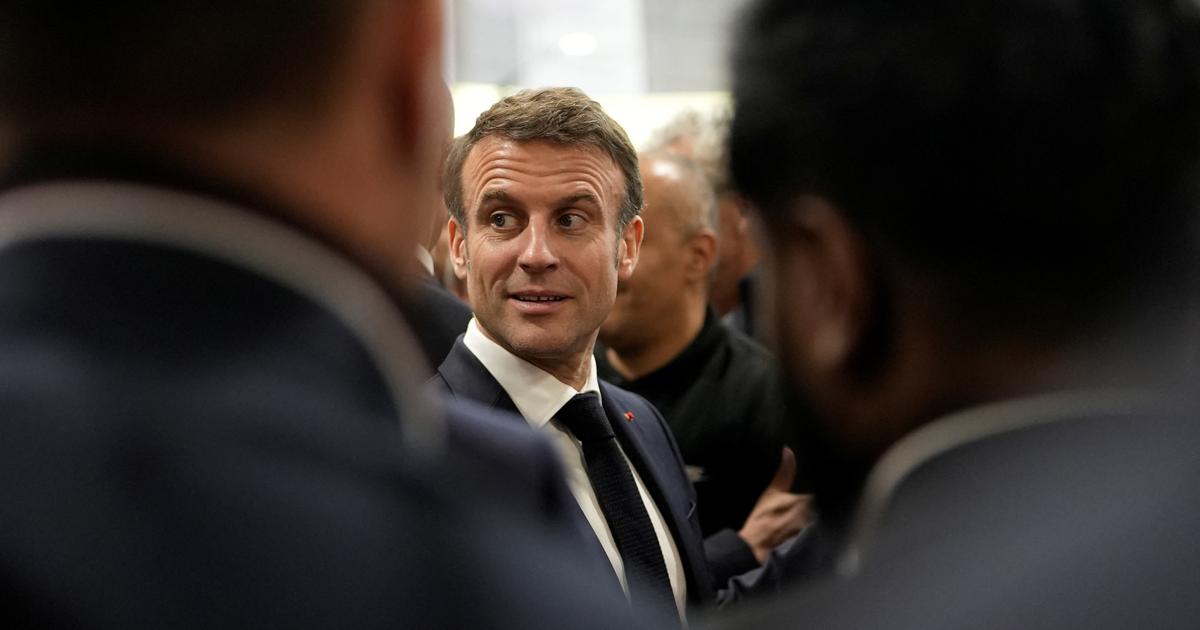Raphaël Llorca is a communicator, doctoral student in philosophy of language, associate expert at the Jean-Jaurès Foundation. He publishes "The Macron brand" with the Aube editions.
FIGAROVOX.
- Your book is called "The Macron brand".
What do you think constitutes a “political brand”?
Is it just "commercial marketing"?
Raphaël LLORCA.
-
When it is called into the public debate, the notion of “political brand” most often refers to a violent critique of the commodification of politics.
To speak of a political brand would be to seek to "sell politics as one sells soap", to use the term.
In reality, she is the victim of a great deal of confusion with political marketing.
Marketing is a sales technique that starts from the needs of the consumer: it is on this conception that
political branding is based
in Anglo-Saxon countries.
In
The Selling of the President
for example, a 1970s bestseller, journalist Joe McGinniss is an excellent example of how marketers vulgarly applied the concepts of "product", "positioning" and "competition" to Nixon's 1968 presidential campaign. .
But quite different is the mark.
All the work of the philosopher Benoit Heilbrunn was to show that the brand, far from being reduced to a strict mercantile function, was above all a very powerful symbolic system.
The brand has this unique ability to coherently articulate three elements: a system of values, a narrative and an aesthetic.
Contrary to an American vision of marketing, I propose to introduce the brand as a system of signs and as a factory of imaginations to take a new look at the political field.
What was the driving force behind the Macron brand in 2017?
To gain power, the candidate Emmanuel Macron has built a very powerful political brand based on a value system very different from the center or the synthesis: the Neutral.
To be “Neutral” is to be “neither”;
it is a third term which has a very precise characteristic, Roland Barthes tells us: rather than confrontation or confrontation, the Neutral is about dodging, parrying, suspending conflict.
Everyone has seen the “at the same time”, which is the language expression.
Everyone has seen the overcoming of divisions, which is the tactical expression of it.
The thesis of the book is that at the roots of Macronism in conquest is the Neutral, a value which succeeds in the feat of articulating opposites without appearing contradictory.
We see this in his programmatic proposals, which are not so much a matter of compromise as of consensus: the candidate avoids any divisive proposal in favor of consensual responses to the concerns of the French (the "right to make mistakes for all", the simplification of the life of entrepreneurs…).
Even when he stages his transformative verve by attacking taboos in French politics, it is to better avoid making really structuring choices: like the ISF or 35h.
Even when Emmanuel Macron stages his transformative verve by attacking taboos in French politics, it is to better avoid making really structuring choices: like the ISF or 35h.
We see it in his mode of speech, with the overuse of an a-political vocabulary (“renewal”, “transformation”, “reconcile”) and an almost total absence of words which traditionally mark membership in a family of thought. clearly identified (“debt”, “border”, “injustice”).
We can see this in his propensity to distribute
“I agree with you”
to his opponents during the first round debates.
We can finally see it in the management of its colors: in the middle of a very broad color spectrum, blue predominates by far, the favorite color of the French, a color that
"does not attack, does not transgress, but which secures and brings people together ”
according to the color historian Michel Pastoureau.
On what springs did Emmanuel Macron build his campaign story?
More than any of his contemporaries, Emmanuel Macron understood the strength, function and importance of the symbol to conquer and exercise power.
So that we could be tempted to propose a definition of macronism, which is neither an ideology nor a method of government.
Macronism is first and foremost a symbolism, that is to say a political form which is thought out, constructed and acted by and for the symbol.
What strikes me is that, against the backdrop of the triumph of
storytelling
that has structured presidential campaigns for a good twenty years, Emmanuel Macron returned to the foundations of storytelling to produce and embody narrative figures both formulate and symbolically solve the problems of French society.
In 2017, the company was perceived as blocked, locked, prevented - it was therefore necessary to disrupt it: this is what Emmanuel Macron embodied via the myth of the “political entrepreneur”, omnipresent in his campaign.
After a “normal presidency”, largely a-symbolic, politics seemed sorely lacking in panache and adventure - hence the myth of the “character in a novel”, who subtly presented the thousand and one virtualities of existence. by Emmanuel Macron.
Candidate for the presidency of the Republic, he could just as well have been a novelist, banker,
start-upper
, theater actor or university professor.
I believe that it is through this ability to embody the dysfunctions of French society through the symbol that he was able to be perceived as the one who was most able to transform it.
With the revolt of the yellow vests, has the “new world” come up against the exercise of power?
During Macron's five-year term, we can notice that his real political opposition did not come from the right, it did not come from the left, nor even from the extreme left or the extreme right: it came from a hybrid and composite movement which was built as an absolute counter-mark - taking up the great lesson of Jean de La Fontaine, whose 400th anniversary of birth is being celebrated this year, who understood that the surest way to weaken a power is to turn its own strength against it.
By building itself as an anti-Neutral, the yellow vests movement came head-on to collide with the Macron brand.
With the president's staging, imprints of the sacred, and therefore of distance (think of his interminable, slow and majestic walk in the square courtyard of the Louvre, or of his multiple receptions at the Palace of Versailles), the Gilet story yellow is raw, harsh, unfiltered: it tells about the thousand daily worries, the long journeys in the car to reach the workplace, the difficult ends of the month.
In the majestic setting of the presidential speeches, Jacline Mouraud speaks from his living room, and Éric Drouet from his truck.
To the blue of consensus is opposed the yellow of dissensus (
"It's yellow, it's ugly, it doesn't go with anything"
says Karl Lagerfeld).
With the elitist references that the President likes (the Minerva owl, “memorial roaming” to commemorate the centenary of the end of the First World War), the tags and banners of the yellow vests reinvest and hijack popular cultural references: series (
“Yellow is the new Black”, “Yellow vests is coming
”), music groups (
“Sapé.es comme Never”
by Maitre Gims), iconic advertising slogans (
“Insurrection, what else?”
).
By building itself as an anti-Neutral, the movement of yellow vests came head-on colliding with the Macron brand.
How did the Macron brand go wrong in power?
By aesthetics, first of all.
I believe that the president gave in to the illusion of the omnipotence of the symbol.
For me, the emblematic example is the
“MAKE OUR PLANET GREAT AGAIN”
, a brilliant publicity stunt, cleverly orchestrated, but which quickly appeared to be totally disconnected from his politics - just four months later, Nicolas Hulot resigned with a bang.
We can speak of "aesthetic secession" when the staging or the symbol suddenly detaches itself from the total system of representation.
When we impose a symbol from above, when we abruptly disregard any coherence, when we only brandish the symbol for the symbol, by force we risk drastically reducing the symbolic effectiveness of the political device.
In reality, a symbol never prints alone;
in any brand, an aesthetic only works when it's firmly anchored to an underlying narrative and worldview.
To forget it is to risk stripping power, and to find oneself in the situation of Richard II in Shakespeare's play,
"a ridiculous snow king exposed to the Bolingbroke sun to [melt] into water"
.
When the king is naked, power wavers.
What strikes me is that the health crisis has further disrupted the Macron brand, by the story this time.
Instead of the narrative of a competent president, champion of efficiency and performance, the public is amazed to see the failings of the State (on masks, on tests, on vaccines).
Very recently, Emmanuel Macron's claim to be an “epidemiological president” overlooking the Scientific Council itself has been very strongly mocked, as highlighted by the hashtag #EmmanuelMacronFacts on social networks (
“Emmanuel Macron has already counted to infinity. Three times. Or once more than Chuck Norris "
).
Instead of a “Master of clocks” imposing his tempo and endowed with a very strong long-term vision, we see a president tossed about by events, forced to improvise, to “make bets”, and even to withdraw from one week to the next.
With this incredible concession on his part:
"The Master of the Clock is the virus"
.
These are the fundamentals of the Macron brand that are affected.
While Édouard Philippe is propelled by the media and acclaimed in the polls as a potential candidate for the presidential election, has macronism missed its bet?
Put to the test of power, Emmanuel Macron considerably evolved his brand, by hardening it: this is what I called the
“degeneration of the Neutral”
, to characterize the passage from Neutral to neutralization.
The Neutral had been able to raise a hope, that of transforming French society in a peaceful way, by suspending its centuries-old conflicts: basically, by opening up the possibility of other discourses that reality had hitherto held to be impossible, the Neutral presented an eminently sympathetic facet.
Neutralization presents a much darker and more threatening aspect.
Indeed, to neutralize is to lessen, to attenuate a force by canceling its effect;
it is to prevent acting by a contrary action, going so far as to organize paralysis.
Where Neutral allowed, opened, and made possible, neutralization prevents, closes, and locks.
The "We are at war" above all makes it possible to call for a "sacred union" which has the merit of silencing any criticism, necessarily sterile, and of striking out with indignity any division, necessarily dangerous.
A political neutralization, first of all, by prolonging the apathy of the opposing parties - by men (Édouard Philippe then Jean Castex in Matignon, to neutralize the right) and by ideas (the doctrine of "progressivism", with voluntarily indefinite finery , to neutralize the left).
A media neutralization, then, by considering that the role of the journalist is first of all to be an effective relay of the messages of the Élysée.
A neutralization of the discourse, finally, by multiplying the metaphors which are as many ways of "framing" the real in a binding way.
Let us take the "New World": it is a formidable efficiency, because it consists in relegating the opposition no longer in space but in time - it is no longer neither of the right nor of the left, it is of yesterday.
The
"We are at war"
is of the same ilk: by its lightning power, the war metaphor makes it possible
"to cover the facts with a noise of language"
, as Roland Barthes wrote nicely;
above all, it makes it possible to call for a “sacred union” which has the merit of silencing any criticism, necessarily sterile, and of striking at any division, necessarily dangerous, with indignity.
We are here in the most successful form of neutralization.
However, we can see that the neutralizing powers of macronism are dissipating.
The simple fact that Édouard Philippe feels he has the authority to cultivate ambiguity about his political intentions and to claim his absolute freedom shows this clearly.
It is a classic of weakening power representation systems: in a remarkable book, the historian Jean-Marie Apostolidès has perfectly described the symbolic crisis of the end of Louis XIV's reign, which saw him pass from 'a "machine-king" who decided on the text, sets, costumes and heroes of the performance, to a "machine-king" whose performance games become mechanical, locked into repetitive ceremonies.
“At the end of the reign,
concludes Apostolidès
, the place of king becomes an empty hut, capable of being occupied by anyone who possesses the effective reality of power”.
For having forgotten it, Emmanuel Macron is exposed to serious political difficulties by the end of his five-year term, including within his own political family.
Is the abolition of the ENA, announced in 2017 by the President of the Republic, a way to reactivate the “Macron brand” by wiping out the “old world”?
It is a new illustration of the politics of the symbol.
Rightly or wrongly, the ENA embodies an administrative elite disconnected from the country (this is the post-yellow vests interpretation) and incapable of acting effectively (this is the post-pandemic interpretation).
This same reform carried out at the start of the five-year term would have strongly marked the spirits: but in a situation where the symbolic capital of the president is almost exhausted, will it be able to influence the perception of reality and be credited to 'a transformative will, we are sworn, "intact"?
Under what brand could Emmanuel Macron present himself in 2022?
What is certain is that you never win twice on the same strategy.
In the event that Emmanuel Macron would be in a position to represent himself, I tried to explore four possible campaign strategies: the brand-conversation, which unearths the promise of horizontality;
the mirror brand, which seeks to match the aspirations of the population as much as possible;
the iconic brand, which reaffirms the pride of being French;
and finally the brand-authority, based on a “will to power” to counteract the feeling of declining status of the country.
What strikes me is that one year from the presidential election, these four options, although very different, still seem to me to be quite open.
Such a field of possibilities is unprecedented!
There remains a hypothesis that I am only sketching in the book: what if another candidate seizes the Neutral torch?
In this case, it would have to reinvent the Neutral, by applying it to other themes, those which deeply affect French post-pandemic society ...
The Macron brand
, Raphaël Llorca, dawn editions, 2021, 176 pages, 17 €
AUBE

